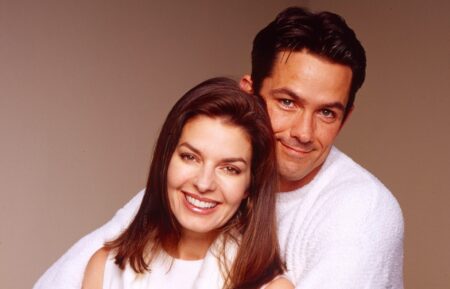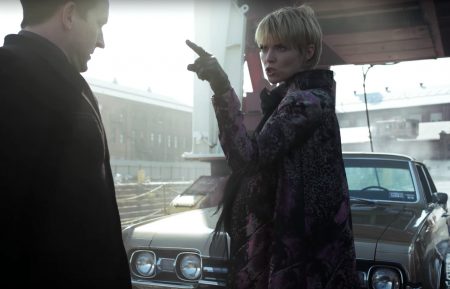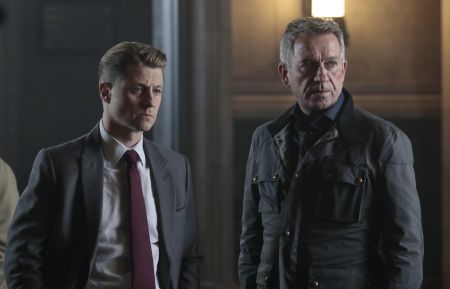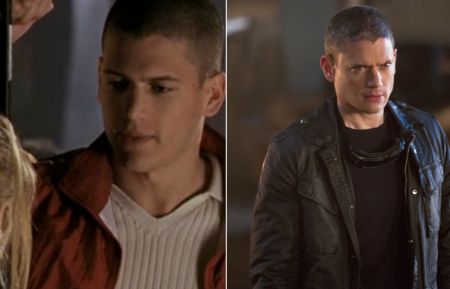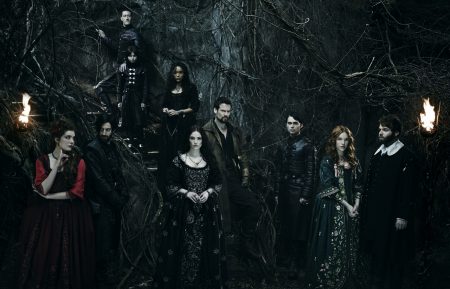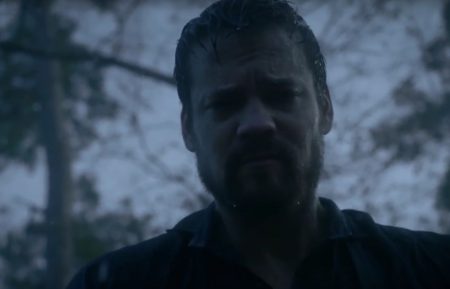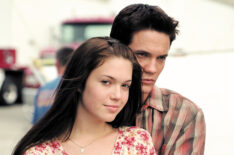Though he appeared at first blush to be the latest in a long line of handsome but brooding leading men, actor Shane West proved to be a capable and adventurous actor who pursued roles of substance after a brief run as an idol in "Whatever it Takes" (2000) and "A Walk to Remember" (2003). Though in his twenties when he began acting, he started out as a juvenile lead on television; most notably on "Once and Again" (ABC, 1999-2002). Its popularity led to pin-up status with the aforementioned teen projects, but West quickly dodged the label with mature turns in "The League of Extraordinary Gentlemen" (2003) and the punk biopic "What We Do Is Secret" (2008).
A four-year stint on "ER" (NBC, 1994-2009) solidified his status as an adult, though he struggled in subsequent years to find an appropriate vehicle for his talents. He finally made good playing a rogue operative who trains a troubled teen-turned-assassin on the well-received revamp, "Nikita" (The CW, 2010-13), one of several spin-offs of Luc Besson's popular 1990 thriller. West's willingness to reach beyond the limitations of standard Hollywood fare made his career worth following.
Born Shannon Bruce Snaith in Baton Rogue, LA on June 10, 1978, he was the son of musicians Don Snaith and Leah Catherine Launey, who divorced when West was 10. At 15, he became interested in performing and began landing some stage roles before heading for Hollywood to try his hand at auditioning. Though he was 23 by the time he landed his first screen role on an episode of "Picket Fences" (CBS, 1992-96), his youthful looks allowed him to credibly pass as a teenager. For the next few years, West made guest appearances on kid-friendly shows like "Boy Meets World" (ABC, 1993-2000), as well as in the TV movie "The Westing Game" (Showtime, 1997).
The latter, produced by independent film legend Julie Corman and based on the Newbery Medal-winning children's novel by Ellen Raskin, gave West an opportunity to explore a more complex character as a young, speech-impaired computer genius who gets wrapped up in a mystery.
After making his Los Angeles stage debut in the six-hour production of John Irving's "The Cider House Rules" in 1998, West appeared in his first film, Barry Levinson's semi-autobiographical comedy-drama, "Liberty Heights" (1999). The following year, he earned his breakthrough role on the television series "Once and Again." His character, 16-year-old high school student Eli Sammler, gave audiences an opportunity to witness West's range; over the course of the series, Eli struggled with not only a learning disability, but the divorce of his father (Billy Campbell), as well as caring for his younger sister (Evan Rachel Wood) who pined for their family to heal. Critically acclaimed and the recipient of numerous awards and nominations, including an Emmy for star Sela Ward, the show was a popular favorite among viewers who were saddened to see its departure from the airwaves.
The success of "Once and Again" opened the door to bigger roles for West in order to please his growing legion of fans. He soon segued into leading man material for harmless, teen-oriented comedies like "Whatever it Takes" (2000), a high school version of "Cyrano de Bergerac" with West as a socially awkward teen who makes a pact with popular student James Franco to woo their respective loves. "Get Over It!" (2002) also took its inspiration from classical literature - specifically, A Midsummer's Night Dream - and gave West a chance to flex his comic muscles as a self-obsessed singer who makes life miserable for Kirsten Dunst and the cast of a high school production of the Shakespeare play.
But the film that truly put West over the top with teenage audiences - girls in particular - was "A Walk to Remember" (2002), an old-fashioned weepie based on the novel by Nicholas Sparks about a high school rebel (West) who falls for the terminally ill Mandy Moore. West, who had been performing in Los Angeles with the band Johnny Was, also contributed a song to the film's successful soundtrack. A huge hit with the sentimentally inclined, it positioned West as a heartthrob of the first order, but he quickly sidestepped any such opportunities by focusing his future projects on more grown-up material.
His next effort was "The League of Extraordinary Gentleman" (2003), a sprawling, epic adaptation of graphic novel writer Alan Moore's celebrated series about a team of heroes from classic literature who fought crime at the turn of the century. West played an adult version of Mark Twain's Tom Sawyer, now an American secret agent who aides Sean Connery's Sir Allan Quartermain against a diabolical menace. A troubled production from its inception, with large portions of the completed film abandoned and/or substantially rewritten, it arrived in the summer of 2003 to disappoint nearly everyone who attended its brief theatrical run.
West soon rebounded as a cast member of "ER," beginning in 2004. He shared certain traits with his character, Dr. Ray Barnett: both were born in New Orleans and both moonlighted as a singer for a rock band. However, Barnett was confrontational, occasionally inappropriate and equipped with a sense of entitlement that caused him to butt heads with the established staff at County General Hospital. Eventually, the producers softened Barnett's character by pairing him with Dr. Neela Rasgotra (Parminder Nagra) in a one-sided relationship. Barnett pined for Rasgotra, who was married to Dr. Michael Gallant (Sharif Atkins); when Gallant was killed while serving in Iraq, Barnett attempted to fill the void, but was soundly rejected. This sent him into a tailspin that culminated in a traffic accident that left him severely injured. After losing both legs as a result of the accident, Barnett returned to Louisiana, where he worked in physical rehabilitation while regaining his own mobility. The loss appeared to give Barnett a new perspective on life, which in turn, allowed for the long-hoped-for romance with Rasgotra to blossom. By the series' conclusion, the pair had come together in New Orleans to work and live.
In 2008, West impressed critics and music fans alike with a hypnotic turn as Darby Crash, doomed frontman for the Los Angeles punk band the Germs in "What We Do Is Secret," a biopic of Crash's brief and tumultuous life. Though a difficult project throughout its entire production - it took nine years to complete the film - it received praise during its brief theatrical run, with West receiving the lion's share of the compliments as the destructive and compelling Crash. West was so convincing in the role that the surviving members of the band actually invited him to sing at several reunion shows, which again yielded a positive response from the band's diehard fans. In the years following "Secret," West kept a low profile, working mainly in independent and low-budget efforts like "The Lodger" (2009), an updated remake of the Alfred Hitchcock thriller about Jack the Ripper, and the high-tech thriller "Echelon Conspiracy" (2009). Few of these saw theatrical releases, but West soon rebounded in the public eye with the rebooted TV series "Nikita" (The CW, 2010-13) with Asian star Maggie Q as a former assassin gone rogue. West played Michael, the operative who trained Nikita and understood her motivations best.



























































